S. KOREA-U.S. DEFENSE COST TALKS CONTINUE
입력 2020.05.08 (15:10)
수정 2020.05.08 (16:46)
읽어주기 기능은 크롬기반의
브라우저에서만 사용하실 수 있습니다.
[Anchor Lead]
U.S. President Donald Trump renewed pressure on South Korea by saying that the American ally agreed to pay a large sum of money for joint defense. Washington reportedly rejected Seoul's 13% increase proposal before countering with a much steeper one, but the South Korean foreign ministry said the increase in defense cost should be reasonable to both sides
[Pkg]
U.S. President Donald Trump once again, pressured South Korea to increase its share of defense cost. The commander-in-chief repeated his claims from April 29th, that Seoul agreed to pay a significant sum.
[Soundbite] DONALD TRUMP(U.S. PRESIDENT)
He essentially said the deal was done, but didn't offer any details. The American leader emphasized that Washington is spending 1.5 trillion dollars for the defense of its allies and pressed those nations to show gratitude by shouldering more of the financial burden. At the U.S. Senate nomination hearing held earlier, James Anderson, nominated for Deputy Under Secretary of Defense for Policy, took the same stance as Trump. In a written statement Anderson highlighted that the U.S. is asking South Korea to cover a fairer amount. America is mounting pressure from all sides after its president rejected Seoul's 13% increase proposal on April 20th. It was reportedly followed by Washington's counter proposal, demanding 1.3 billion dollars, a hefty 49% on-year spike. KBS has written to the U.S. Departments of Defense and State asking about this matter, but the government neither confirmed nor denied it. The U.S. mentioned "During the course of negotiations, we have adjusted and compromised. We have shown significant flexibility in recent weeks in order to reach a mutually acceptable agreement. We're looking for further compromise from the Republic of Korea Government as well." South Korea's Foreign Ministry simply said the negotiations are ongoing.
[Soundbite] KIM IN-CHUL(SPOKESMAN, MINISTRY OF FOREIGN AFFAIRS) : "In order to accept a negotiation outcome, it must be reasonable and fair to both sides."
Washington wants more flexibility. Seoul demands a more reasonable offer. The gap appears too wide for the allies to make significant strides in negotiations any time soon.
U.S. President Donald Trump renewed pressure on South Korea by saying that the American ally agreed to pay a large sum of money for joint defense. Washington reportedly rejected Seoul's 13% increase proposal before countering with a much steeper one, but the South Korean foreign ministry said the increase in defense cost should be reasonable to both sides
[Pkg]
U.S. President Donald Trump once again, pressured South Korea to increase its share of defense cost. The commander-in-chief repeated his claims from April 29th, that Seoul agreed to pay a significant sum.
[Soundbite] DONALD TRUMP(U.S. PRESIDENT)
He essentially said the deal was done, but didn't offer any details. The American leader emphasized that Washington is spending 1.5 trillion dollars for the defense of its allies and pressed those nations to show gratitude by shouldering more of the financial burden. At the U.S. Senate nomination hearing held earlier, James Anderson, nominated for Deputy Under Secretary of Defense for Policy, took the same stance as Trump. In a written statement Anderson highlighted that the U.S. is asking South Korea to cover a fairer amount. America is mounting pressure from all sides after its president rejected Seoul's 13% increase proposal on April 20th. It was reportedly followed by Washington's counter proposal, demanding 1.3 billion dollars, a hefty 49% on-year spike. KBS has written to the U.S. Departments of Defense and State asking about this matter, but the government neither confirmed nor denied it. The U.S. mentioned "During the course of negotiations, we have adjusted and compromised. We have shown significant flexibility in recent weeks in order to reach a mutually acceptable agreement. We're looking for further compromise from the Republic of Korea Government as well." South Korea's Foreign Ministry simply said the negotiations are ongoing.
[Soundbite] KIM IN-CHUL(SPOKESMAN, MINISTRY OF FOREIGN AFFAIRS) : "In order to accept a negotiation outcome, it must be reasonable and fair to both sides."
Washington wants more flexibility. Seoul demands a more reasonable offer. The gap appears too wide for the allies to make significant strides in negotiations any time soon.
■ 제보하기
▷ 카카오톡 : 'KBS제보' 검색, 채널 추가
▷ 전화 : 02-781-1234, 4444
▷ 이메일 : kbs1234@kbs.co.kr
▷ 유튜브, 네이버, 카카오에서도 KBS뉴스를 구독해주세요!
- S. KOREA-U.S. DEFENSE COST TALKS CONTINUE
-
- 입력 2020-05-08 15:16:40
- 수정2020-05-08 16:46:50
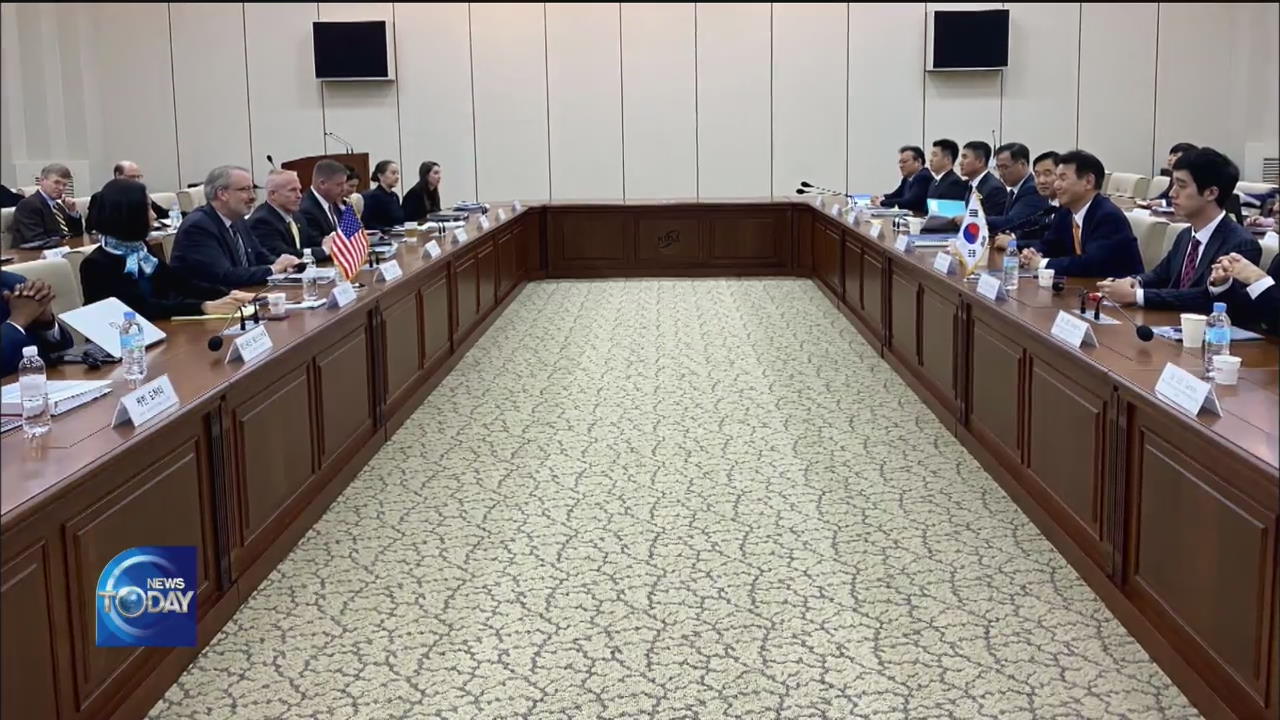
[Anchor Lead]
U.S. President Donald Trump renewed pressure on South Korea by saying that the American ally agreed to pay a large sum of money for joint defense. Washington reportedly rejected Seoul's 13% increase proposal before countering with a much steeper one, but the South Korean foreign ministry said the increase in defense cost should be reasonable to both sides
[Pkg]
U.S. President Donald Trump once again, pressured South Korea to increase its share of defense cost. The commander-in-chief repeated his claims from April 29th, that Seoul agreed to pay a significant sum.
[Soundbite] DONALD TRUMP(U.S. PRESIDENT)
He essentially said the deal was done, but didn't offer any details. The American leader emphasized that Washington is spending 1.5 trillion dollars for the defense of its allies and pressed those nations to show gratitude by shouldering more of the financial burden. At the U.S. Senate nomination hearing held earlier, James Anderson, nominated for Deputy Under Secretary of Defense for Policy, took the same stance as Trump. In a written statement Anderson highlighted that the U.S. is asking South Korea to cover a fairer amount. America is mounting pressure from all sides after its president rejected Seoul's 13% increase proposal on April 20th. It was reportedly followed by Washington's counter proposal, demanding 1.3 billion dollars, a hefty 49% on-year spike. KBS has written to the U.S. Departments of Defense and State asking about this matter, but the government neither confirmed nor denied it. The U.S. mentioned "During the course of negotiations, we have adjusted and compromised. We have shown significant flexibility in recent weeks in order to reach a mutually acceptable agreement. We're looking for further compromise from the Republic of Korea Government as well." South Korea's Foreign Ministry simply said the negotiations are ongoing.
[Soundbite] KIM IN-CHUL(SPOKESMAN, MINISTRY OF FOREIGN AFFAIRS) : "In order to accept a negotiation outcome, it must be reasonable and fair to both sides."
Washington wants more flexibility. Seoul demands a more reasonable offer. The gap appears too wide for the allies to make significant strides in negotiations any time soon.
U.S. President Donald Trump renewed pressure on South Korea by saying that the American ally agreed to pay a large sum of money for joint defense. Washington reportedly rejected Seoul's 13% increase proposal before countering with a much steeper one, but the South Korean foreign ministry said the increase in defense cost should be reasonable to both sides
[Pkg]
U.S. President Donald Trump once again, pressured South Korea to increase its share of defense cost. The commander-in-chief repeated his claims from April 29th, that Seoul agreed to pay a significant sum.
[Soundbite] DONALD TRUMP(U.S. PRESIDENT)
He essentially said the deal was done, but didn't offer any details. The American leader emphasized that Washington is spending 1.5 trillion dollars for the defense of its allies and pressed those nations to show gratitude by shouldering more of the financial burden. At the U.S. Senate nomination hearing held earlier, James Anderson, nominated for Deputy Under Secretary of Defense for Policy, took the same stance as Trump. In a written statement Anderson highlighted that the U.S. is asking South Korea to cover a fairer amount. America is mounting pressure from all sides after its president rejected Seoul's 13% increase proposal on April 20th. It was reportedly followed by Washington's counter proposal, demanding 1.3 billion dollars, a hefty 49% on-year spike. KBS has written to the U.S. Departments of Defense and State asking about this matter, but the government neither confirmed nor denied it. The U.S. mentioned "During the course of negotiations, we have adjusted and compromised. We have shown significant flexibility in recent weeks in order to reach a mutually acceptable agreement. We're looking for further compromise from the Republic of Korea Government as well." South Korea's Foreign Ministry simply said the negotiations are ongoing.
[Soundbite] KIM IN-CHUL(SPOKESMAN, MINISTRY OF FOREIGN AFFAIRS) : "In order to accept a negotiation outcome, it must be reasonable and fair to both sides."
Washington wants more flexibility. Seoul demands a more reasonable offer. The gap appears too wide for the allies to make significant strides in negotiations any time soon.
이 기사가 좋으셨다면
-
좋아요
0
-
응원해요
0
-
후속 원해요
0










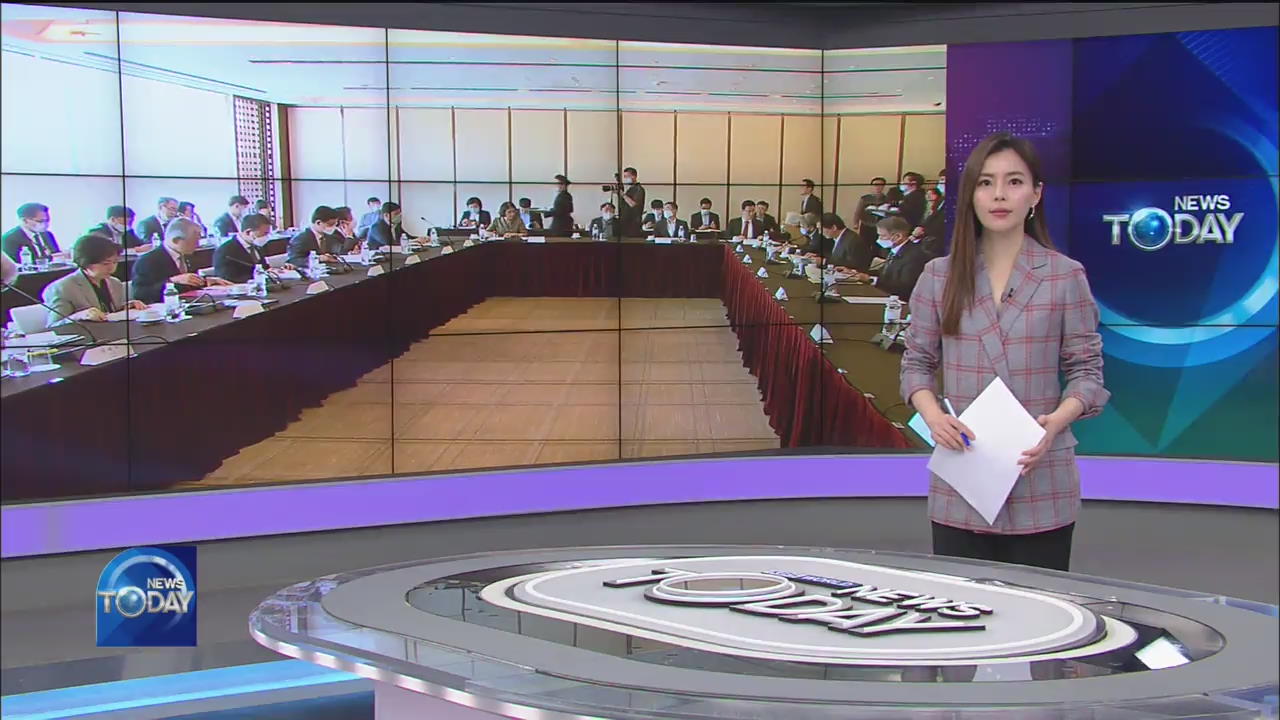
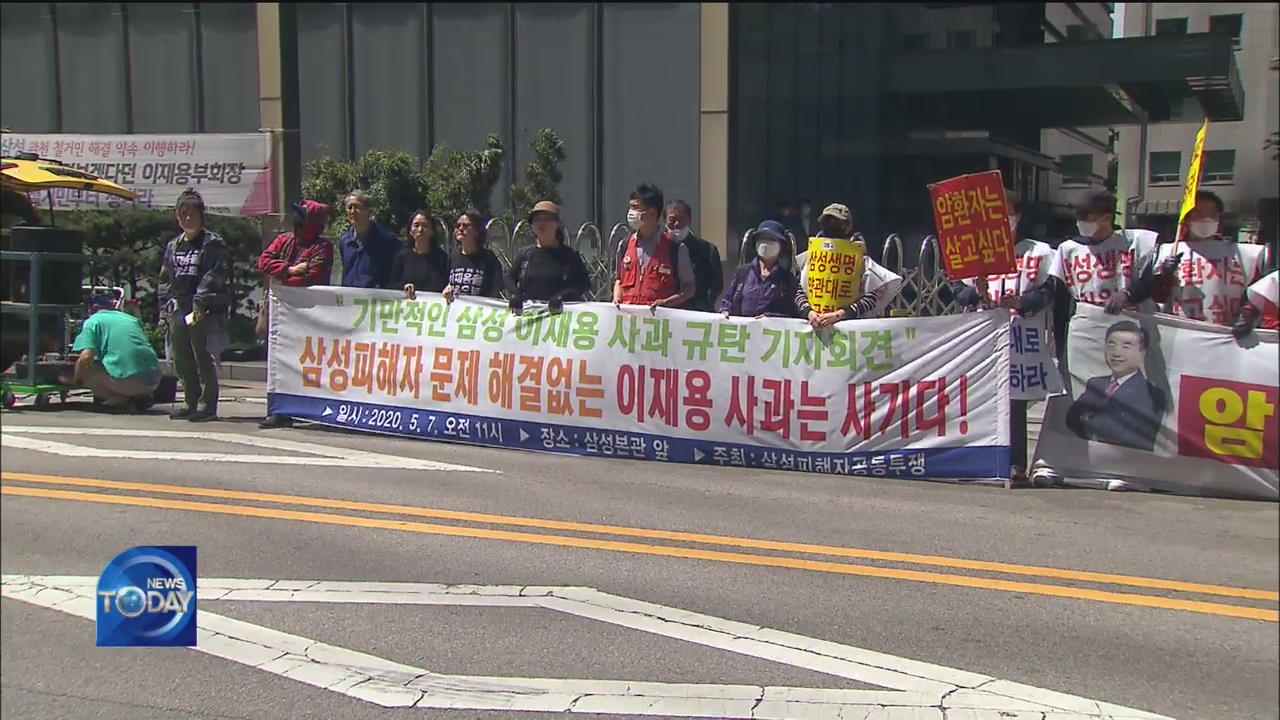
![[속보] 법원, 이재명 ‘공직선거법’ 1심 선고 생중계 않기로](/data/layer/904/2024/11/20241113_BgfLcc.jpg)
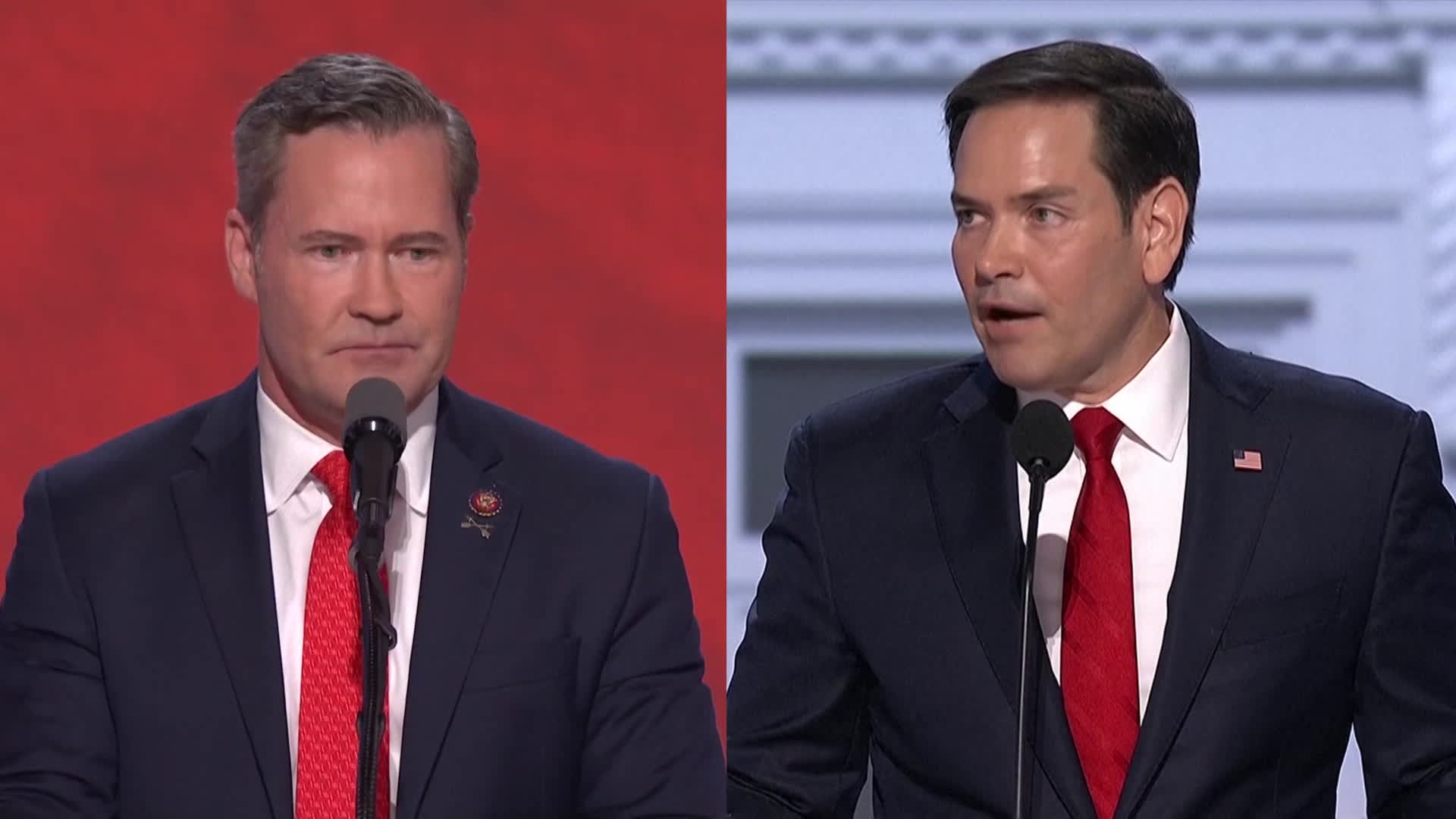
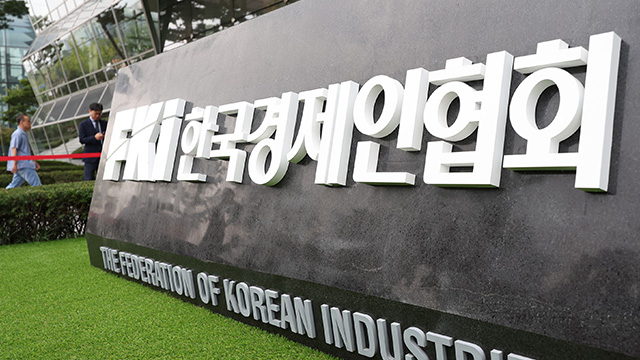
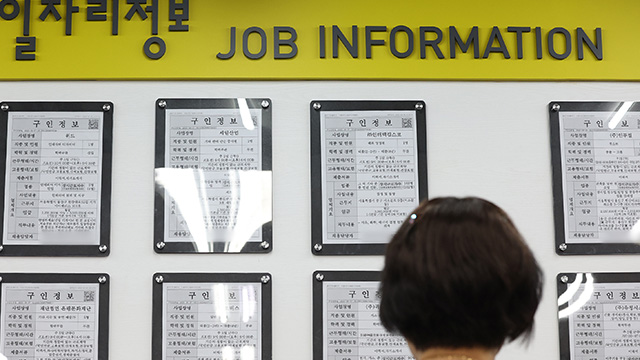

이 기사에 대한 의견을 남겨주세요.